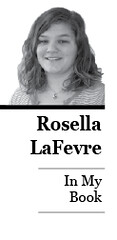A review of James Franco's story collection, Palo Alto, that I wrote for two.one.five magazine.
“Halloween,” the opening story in James Franco’s story collection
Palo Alto, is told by a grown-up narrator who, in his sophomore year of high school, kills a woman because he drives drunk. In the end of the story, the narrator says he has since driven down the same street where the incident took place and his remembrance of the poor woman’s death is an afterthought. The narrator’s apathy is disturbing and, yet, it almost means nothing.
The narrator of “Halloween” is not conflicted about this childhood tragedy, and neither is there any conflict in the story. The narrator does mention some tension between him and his girlfriend, who he is driving to confront when the mystery woman is hit, but largely, the story slips through the reader’s mind with no great friction to make it stick. “Halloween” reads like a memory put to paper with the intention of writing the real story at some later date.
While Franco’s narrator is clearly years past his adolescent misdeed, his language is not. The composition of his sentences, most of which are loaded down with helping verbs, is sophomoric and fragmentary. The cadence of Franco’s words is abrupt, halting, jarring, and it feels, not like it was a conscious decision made by the writer, but more like simply bad writing. Too many of his sentences read like this: “His professor father had a great liquor cabinet.” Many of the adjectives are vague like “great” and “horrible.” Then there’s Franco’s line: “Ed was half Korean and half white because his mother was Korean and his dad was white from Gary, Indiana.” How perceptive.
The story is weighed down by a lot of unnecessary exposition – like when he writes paragraphs about Ed and Ed’s family while Ed has very little, at all, to do with the story. There are several pages spent on the dynamics of the narrator’s friendships while there are about two sentences that inform the reader that the narrator was on probation when he ran the librarian over. There is no explanation of why and it doesn’t really seem to play into the story – it’s a fairly tangential (at least in practice) revelation. If this story were written by a regular Joe, critics would deride these sequences as throat-clearing and suggest that the writer attend a few more classes at Columbia before publishing again.
In fact, were Franco not a celebrated actor, it’s hard to believe he would have gotten a book deal. The second story in Franco’s collection, “Lockheed,” is told in exactly the same voice as “Halloween” although the narrator of the second story is female. Even the best story in the collection, “April in Three Parts,” which is told in three disjointed sections, disappoints, although the third section of the story has great potential on its own.



